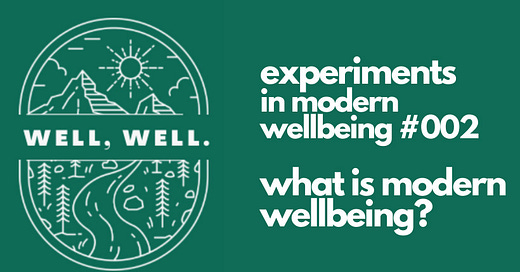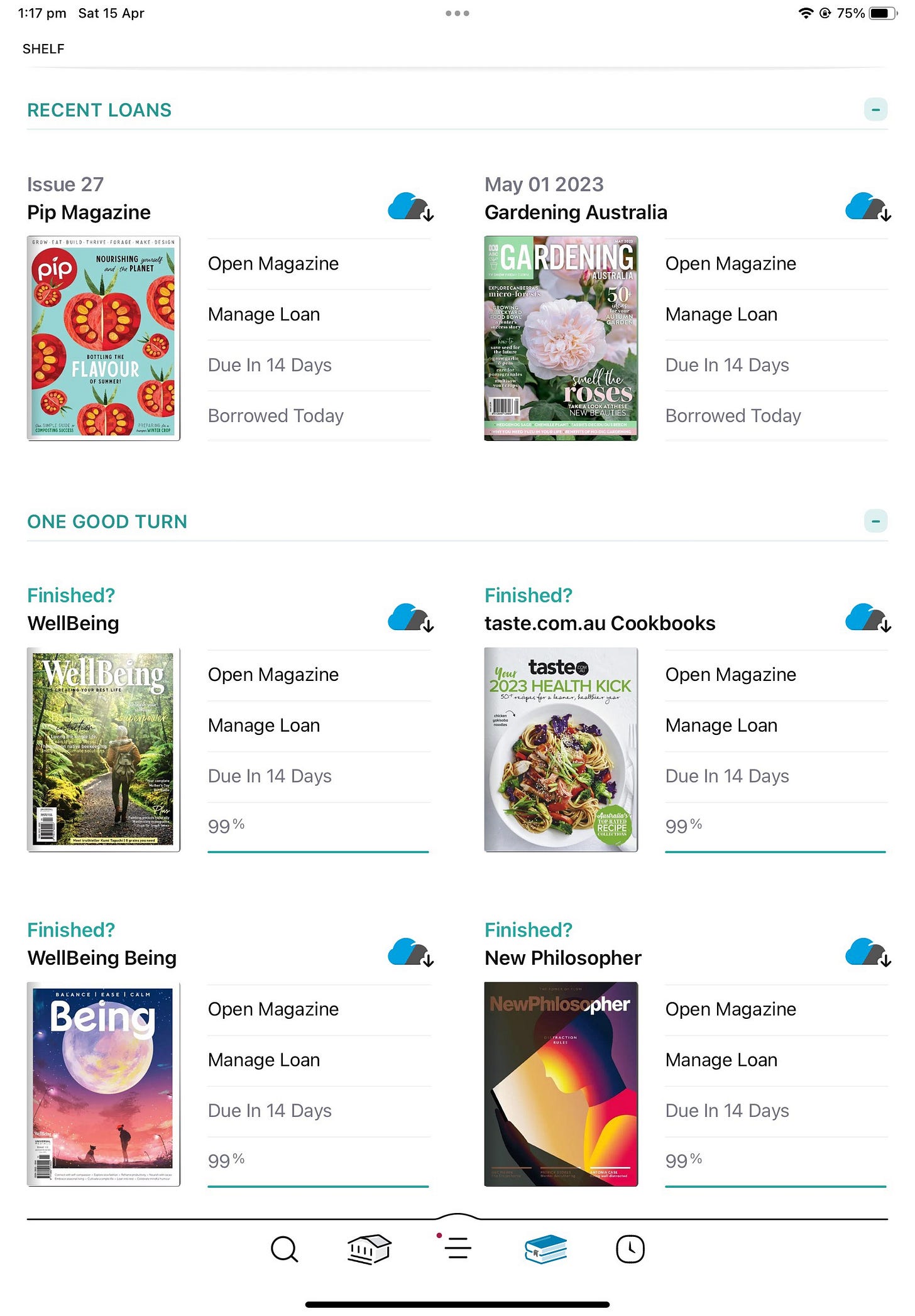#002 What is modern wellbeing?
Wellbeing is one of those loaded terms for a lot of people. For some, we don’t like to talk about our wellbeing – it seems a bit hippy dippy, a bit self-indulgent, something we don’t have time for. For others, thinking about wellbeing is a luxury – how can we think about wellbeing if we are in insecure housing or living pay cheque to pay cheque? And some fall somewhere in the middle – we want to improve our wellbeing, but we have jobs, ageing parents, bills to pay, and school lunches to make – wellbeing is grocery shopping alone for an hour!
Wellbeing is defined as our ability to feel good and function effectively. It is what provides us with the resilience to navigate the natural highs and lows we all experience in our lives, while enabling us to intellectually, emotionally, socially and physically flourish.
This sounds like something everyone is entitled to, right? Not just those who have the time, space and financial resources to be well.
Unsurprisingly, given wellbeing is so central to our lives, there has been a LOT of research on the topic. From Martin Seligman’s PERMAH model (Positive emotion, Engagement, Relationships, Meaning, Accomplishment, and Health) to Maslow’s Hierarchy of Human Needs (moving from physiological at the base, to safety, love and belonging, esteem, and self-actualisation at the peak), many people (interestingly, mostly men!) have been studying what influences individual and societal wellbeing.
The simplest way to measure wellbeing is to ask people “overall, how satisfied are you with your life these days?”
When thinking about life satisfaction and wellbeing, the following factors usually play a role:
· Physical and mental health
· Social and community networks
· Work and living conditions
· Environmental factors
How would you answer that question? What factors would you weigh most heavily when rating your own life satisfaction? And how has it changed over time?
A view of ‘modern’ wellbeing seems complicated when we try to fit wellbeing into our already overstuffed lives. Who has time to prepare meals from scratch, exercise, meditate, play lego, work 9 hours a day, clean the house, and make time to see friends and family.
While all of these things could contribute to your wellbeing, it is likely that trying to do them all at once – or that annoying idea of ‘work/life’ balance – will just leave you feeling squeezed and stressed out.
Zooming out, wellbeing is a bit more modern these days because more people are demanding it and governments are listening. Slowly, some of the structural impediments to wellbeing are being addressed by governments. New Zealand, Scotland, Wales and Iceland have applied a wellbeing lens to develop public policy for a number of years. In Australia, the government announced last year its intention to ‘Measure what matters’ for Australians and using this data to develop public policy.
So what to do? There isn’t a magic Well, well. formula that I have discovered (yet!), though over the coming weeks, months (years!?), I want to explore this idea of modern wellbeing – how do you put your own wellbeing first? What are some of the things you can do to get the most wellbeing bang for your buck? How do you develop community around wellbeing goals? How do we advocate for structural change so that we all experience wellbeing, no matter what your postcode is?
It’s time for a wellbeing revolution. Come along for the ride!
Because wellbeing is never a one size fits all approach, I invite you to pick and choose from the experiments I am trying out at Well, well. H.Q.
Try one new thing a week, then decide if the activity serves your wellbeing – if not, ditch it and try something else!
This week’s experiments come from the excellent Monocle Book of Gentle Living: A guide to slowing down, and enjoying more and being happy. It is a beautiful book full of ideas to keep it simple, kick back and take stock:
This week, can you make time to:
· Read more – carry around a book and pull it out when you have a spare moment rather than scrolling through your phone. Books help us to slow down, focus and reason, and offer windows into the minds and curiosities of others. Better than doomscrolling the news or twitter.
· Talk to a friend – I read about the 8 minute call in the New York Times earlier this year and love the idea. Too often, I think I would love to call a friend but don’t have time to chat for 30+ minutes, so inevitably send a text instead. Most people “tend to think that in some unspecified future, we’ll have a ‘time surplus,’ where we’ll be able to connect with old friends.” That may never materialise, so pick up the phone and invest the time right now.”
· Eat outside – find a nice spot under a tree and enjoy a meal outside (without looking at your phone!).
If you are interested in some weekend wellbeing reading, here are a couple of great resources:
Seligman’s PERMA+ Model Explained: A Theory of Wellbeing
The Monocle Book of Gentle Living: A guide to slowing down, enjoying more and being happy.
Your local library is full of great online resources, like the Libby app, which is packed full of great magazines that write on lots of wellbeing related topics, including food, gardening, health, and philosophy!
Some of the great wellbeing magazines available through the ACT Library
Podcasts
The Imperfects – Oliver Burkeman - The JOY of Missing Out
*Oliver’s book 4000 Weeks is also a must read!
If you enjoyed this post, please subscribe and share it!
Be well and have a great week,
Alicia





